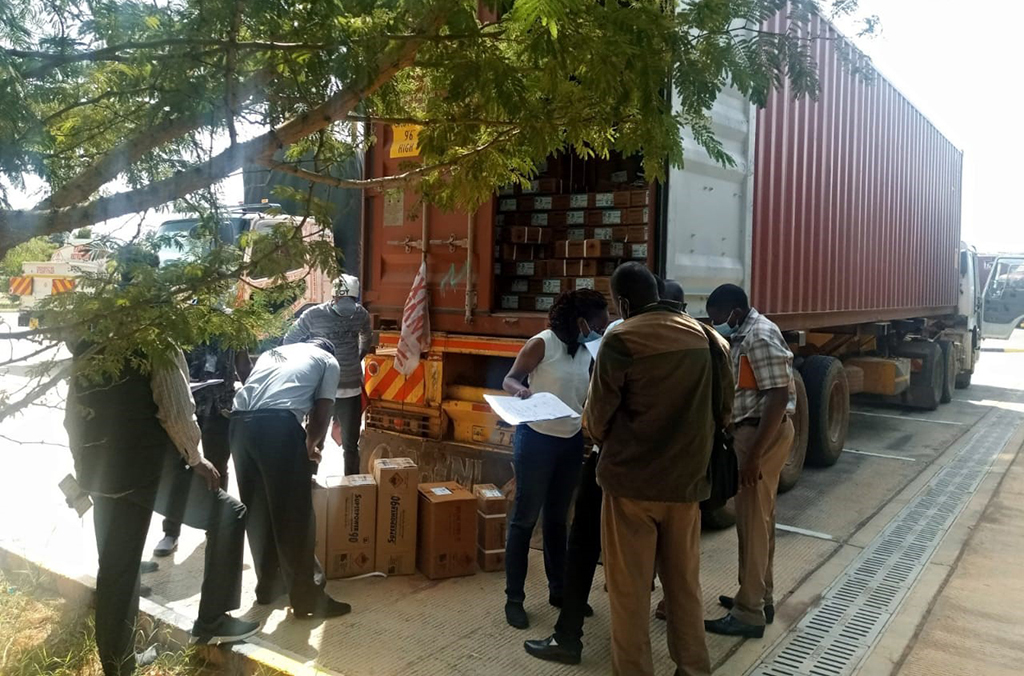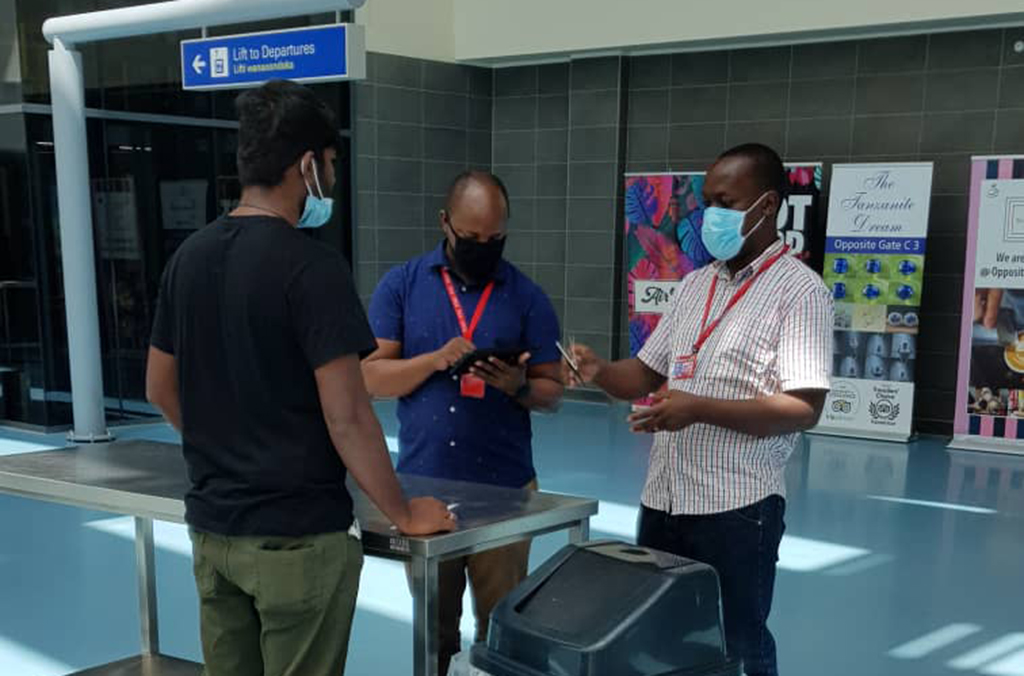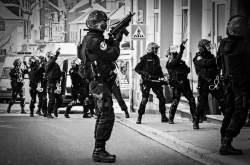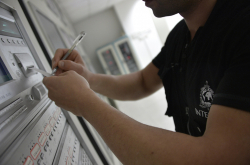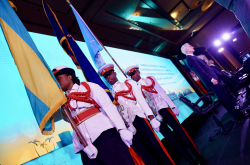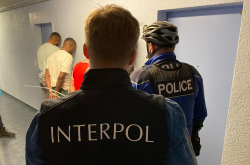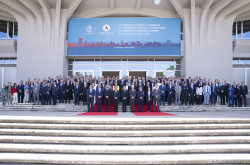LYON, France – Boosting the ability of frontline officers at air, land and sea border crossings to detect a traveler as a potential terrorist or criminal was the focus of an operation coordinated by INTERPOL across Kenya, Tanzania and Uganda.
With local and regional terrorist networks preying on insecure borders, Operation Simba III (19 – 28 March) saw the seizure by Ugandan authorities at the Mutukula border point of some 25 kg of ammonium nitrate and other materials used by terrorists to manufacture improvised explosive devices.
Highlighting how terrorist activity is often linked to other crime areas, some 4.6 million checks were carried out at border crossings against INTERPOL global databases, leading to the identification of men and women wanted for terrorism and other serious crimes.
Wanted persons detected
Seven individuals wanted internationally under INTERPOL Red Notices for crimes including fraud, murder, drug trafficking, armed robbery and financial crimes were detected, triggering investigations in several countries.
Kenyan authorities at the Moi International Airport in Mombasa arrested a woman after she was found carrying 5.3 kg of heroin worth some USD 137,000, having travelled to Kenya via an alleged drug trafficking route from Southern Africa to East Africa.
Border checks also led to the detection of an individual wanted for alleged links to terrorism, as well as of another individual sought by the International Criminal Court for crimes against humanity.
Enhancing regional security
The operation saw more than 700 hits on INTERPOL’s Stolen and Lost Travel Documents (SLTD) database. Stolen travel documents are a key asset for terrorist mobility, particularly for foreign terrorist fighters returning from conflict zones.
“Operation Simba III demonstrates the importance for countries to use INTERPOL’s wide range of criminal databases in strategic places like border crossings,” said Gregory Hinds, INTERPOL’s Counter-Terrorism Director.
“Through its policing tools and services, INTERPOL is determined to help countries in regions such as East Africa address their specific security threats and help build a safer environment,” added Mr Hinds.
With access to INTERPOL’s databases and secure global police communications system (I-24/7) in key strategic locations, frontline officers in the three countries had access to the intelligence required to stop suspected criminals.
“It is important to underline the role of operations such as Simba III in enhancing security for East African countries. It’s with the support of INTERPOL that we are able to share intelligence information which leads to strategic outcomes, including relevant arrests and seizures,” said Agnes Kiprotich, Deputy Head of the INTERPOL National Central Bureau in Nairobi.
A concerted effort
INTERPOL’s General Secretariat in Lyon, France, its Nairobi-based Regional Counter-Terrorism Node (RCTN) for Eastern and Southern Africa and the INTERPOL Global Complex for Innovation in Singapore coordinated the 10-day initiative.
Underlining the need for an international, multi-stakeholder effort against terrorism, the operation involved police, customs, border forces and counter-terrorism experts, as well as the EAPCCO Counter-Terrorism Centre of Excellence based in Nairobi.
The operation demonstrated effective police - customs cooperation and was a good example of INTERPOL - World Customs Organization (WCO) partnership. In parallel, the United Nations Office of Counter-Terrorism (UNOCT-UNCCT) provided expertise in the areas of its competence and co-organized regional events tied to the initiative.
Against the context of the pandemic, some one hundred law enforcement agencies took part in virtual training on INTERPOL’s tools and services prior to the operation.
Operation Simba III was coordinated with funding by the INTERPOL Foundation for a Safer World.




